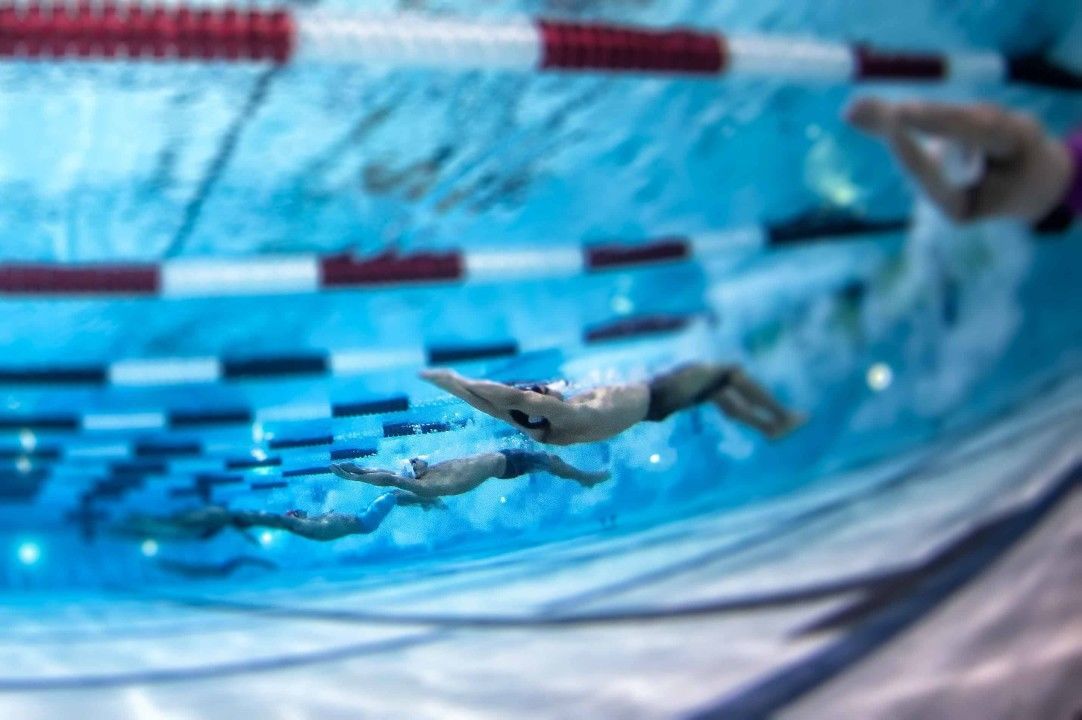2021 FINA SHORT COURSE WORLD CHAMPIONSHIPS
- Thursday, December 16th – Tuesday, December 21st
- Etihad Arena, Abu Dhabi, United Arab Emirates
- SCM (25m)
- Prize Money
- Meet Site
- Psych Sheet
- SwimSwam Preview Index
- Live Results
After we saw an influx of breaststrokers disqualified on the opening day of the 2021 Short Course World Championships, questions arose on whether or not these were strictly judgment calls made by certain officials or if it was underwater video catching an unusually high number of swimmers breaking the rules.
The answer is that underwater video can initiate a stroke infraction, a rule that has been in place since last year.
The use of underwater video at both the Olympics and World Championships was approved to “initiate stroke infraction calls” in early 2020, and made its debut in Tokyo this past summer.
At Olympic Games and World Championships approved Automatic Officiating Equipment, including Underwater Video Judging Equipment shall be provided and used. The approved Underwater Video Judging Equipment shall be used to initiate stroke infraction calls, confirm stroke infraction calls or assist the Referee to overturn calls made on the pool deck.
In the prelims, 13 swimmers were disqualified across the women’s 50 breast and the men’s 100 breast, and then during finals, Alia Atkinson, the top seed, world record holder and defending champion in the women’s breast, got DQed.
All of the DQs were reportedly called by the underwater cameras, and Atkinson, Arianna Castiglioni and Yu Yiting (who were both DQed in the women’s 50 breast prelims, and would’ve made the semi-finals otherwise) were all called for a downward dolphin kick prior to the finish.
The video review system does not mean that officials cannot make a disqualification, but the footage can be used to either overturn a referee’s call, in addition to finding illegal infractions on its own.

I think this is a great idea! There are swimmers out there who willingly and knowingly cheat by adding in an extra dolphin kick and then there are swimmers who swim it and follow the rules. Hopefully this will even the playing field. Cheaters will always try to cheat.
So, in a 8 or 10 lane pool how many video referees and how many cameras would you need to identify the stroke infraction? It’s very hard to see many swimming infractions from above the water due to swimmers splash as well as speed. I think the key is teaching the swimmers the correct stroke. Coaches and swimmers will always push the limit and should for evolution of the stroke. Covid has caused a great loss of officials in the sport in Illinois. At a meet last week we had one stroke turn official over 9 lanes. Impossible to judge fairly. Think long and hard before thinking underwater video should be used for identifying stroke infractions. Let’s get enough qualified… Read more »
Sick. I wonder who the real winner of the London final of the Men’s 100 BR would have been.
Sprenger. Australia would have doubled our gold medal count lol
It would have been Hansen. Sprenger took a dolphin kick at the finish during the semi-final. The dude has gotten screwed out of an olympic gold medal twice
I don’t know if this is a good idea. Its seems like it can be used a political thing. By that I mean they can pick and choose when to apply it as opposed to applying it fairly to everyone.
You don’t think that individual referees can’t already do that?
If anything, I think it would be better for all videos to be reviewed before medals. That way all swimmers hoping for a medal know that their swim will get looked over 100%. Might actually stop people breaking the rules.
Goof point. Find some referees from some neutral countries and let them look at all the video they want
boom